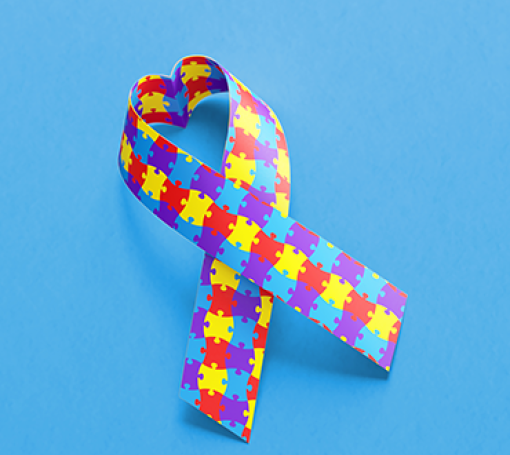Mental Health
We know that the COVID pandemic, transitioning back to in-person school, and any number of personal issues are contributing to a significant rise in anxiety, depression, attention, academic and sleep concerns for our patients. It’s important to help your teen identify mental health triggers and equip them with the tools that ensure a sense of calm and security.
Mental Illness Triggers
Balance is the secret to mental health. Stress needs to be balanced by composure and ambition needs to be balanced by unconditional love and acceptance. Mental health issues often flare up when there is an imbalance between stress and calm; between pressure and unconditional acceptance.
Developing the emotional intelligence to maintain composure during varying degrees of stress is a long-term endeavor. Additionally, finding unconditional love, given the complicated nature of relationships and expectations, is challenging.
No wonder there is an increase in mental illness around the time of midterms and finals for our teens. Our children feel pressure and fear that failure may derail their college ambitions. They are still maturing and may not have the emotional tools to counterbalance the stress. When stressors and pressure outweigh calming routines and security, mental illness manifests.
Tips for Parents
My recommendation to parents is to provide your teen with the tools that ensure a sense of calm and security. Start when your child is very young and allow the emotional tools to evolve and mature as your child grows.
- Provide a simple repetitive routine. For an infant, this is as easy as thumb sucking. For adults, it is breathing. The slow repetitive breathing activates the parasympathetic nervous system, slows the heart, slows the brain, and provides calm. The challenge is to bridge the infant years (thumb) with the adult years (slow breathing). My preference is to hum the same song or musical prayer every night at bedtime, starting in infancy, and continuing perhaps indefinitely. Then when stressors arise, the calming song is always available.
- Help minimize the exhaustion our children experience. When they return from school to watch 1-3 hours of screen time, they are further stressing an already tired brain. Limiting screen time to weekends and encouraging balance between body (exercise), brain (school), and feelings (art/music) may help moderate the intellectual and emotional stressors.
- The secret to providing security and acceptance is tough for many parents, especially when children enter the teen years. We share a mixed message: I love you unconditionally, but you still have to make your bed and do your chores. Therefore, there is value in having your child find another object as a source of security.
- Identify an object or action that helps your child feel secure. A teddy bear or security blanket is a good first start. In the teen and early adult years, that security object may evolve into something that is simple, predictable, and accessible. Mine is both a walk and absorbing the beauty of Mother Nature. For my wife, it’s a run. For others it’s a reading a book, taking a shower, listening to music, or snuggling a pet. The specifics don’t matter; it only matters that you feel like there is one experience that provides security: I accept and love you unconditionally!
Modeling Mental Health Through Transparency
My recommendation for addressing mental health with your child, before it becomes an issue, is to be transparent. Children don’t require that we as parents are perfect, they simply want us to be honest and straightforward. Always ask about your child’s day and know that it’s okay to share about your own day. Let them know you experience challenges too, but that their smiling face provides comfort and reminds you of all the positive things in life. The hope is that when your child is struggling, they will be open to expressing their challenges and seek comfort in your smile and presence.
Pediatric Resources
The value of pediatrics is that we have 21 years of your child’s life to share our insights and recommendations. We see the ups and downs of those 21 years each week in the office. We witness new parents carefully protecting their one-week old baby. Twenty minutes later, we marvel at the unlimited energy and enthusiasm of a toddler. We watch school age children evolve from free-form to mature young adults. And we watch adolescents practice their independence before they venture off to college. We are the crystal ball into your future. We see toddlers that are calm, and toddlers that are scared. We see children embrace chores, and children resist responsibility. And we see teenagers thrive and teenagers struggle. Over time, the patterns that lean toward mental health (and toward mental illness) become clear.
As pediatricians, we prioritize prevention. Daily practice of the tips shared above can prevent the majority of mental illness. However, sometimes the stressors and complicating factors in life create a change in our behaviors. As pediatricians, we will always promote a healthy lifestyle first, but when medications are needed to modify our brain chemistry to buffer times of stress, anxiety, or depression, we are willing to assist in this manner, while the behavioral component of self-care catches up. If you think your child may need additional help, Allegro Pediatrics offers a list of support options in our Mental Health Resources guide.
Summary
Child development includes physical, language, and emotional milestones. Maturing the skills in each of these areas can and should start in infancy. In order to promote emotional health, remember to practice these three steps.
- Teach Calm. Provide your child with simple, repetitive behavior in order to create the calm that buffers life’s stresses.
- Provide Security. Offer security and acceptance both through unconditional love, and through routines like exercise, music, or pets that provide unmistakable acceptance.
- Practice Moderation. Encourage a balance between body (exercise), brain (school), and feelings (art/music). This may help moderate the intellectual and emotional stressors.
When we find the balance between stressors and calm, ambition and security, we increase the likelihood of mental health.
Dr. David Reuter is a pediatrician in the Allegro Pediatrics Bothell location.
Keep Reading
View All Posts
Autism Acceptance
April is Autism Acceptance Month. Lauren Frishholz, Nurse Practitioner at Allegro Pediatrics, offers helpful information for families of children with an autism diagnosis.

Constipation
Constipation is common in children. Learn what is considered healthy and what you should do if you believe your child may be constipated.

Children & Nutrition
Dr. Eva Taylor answers some of the most common questions about children and nutrition.

